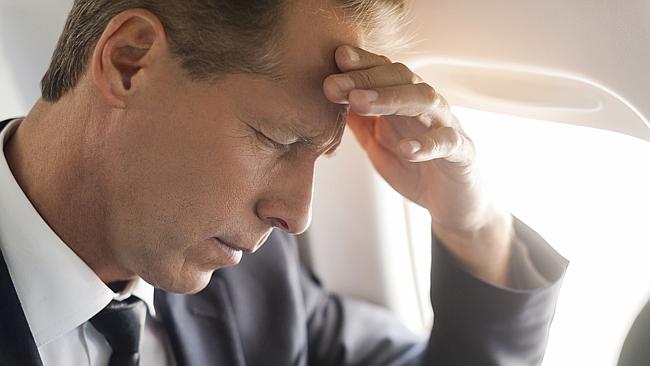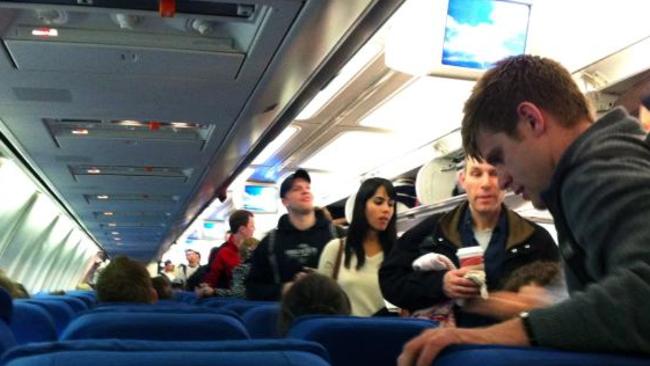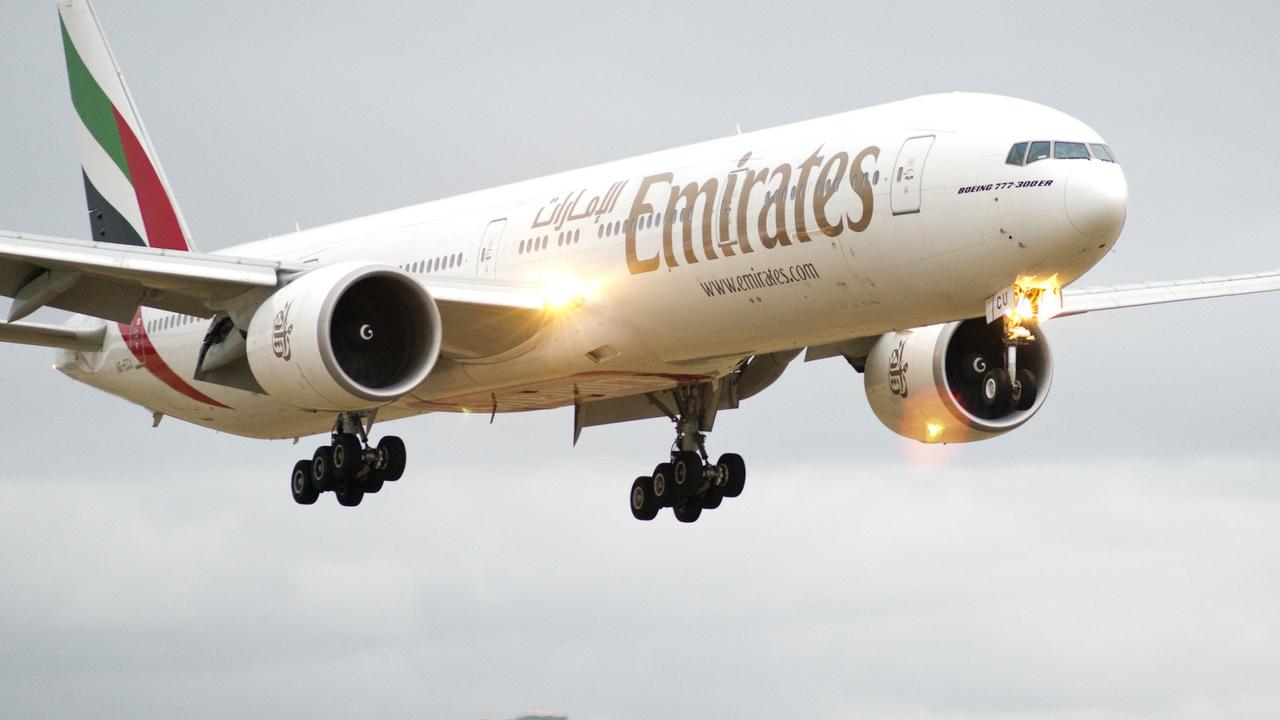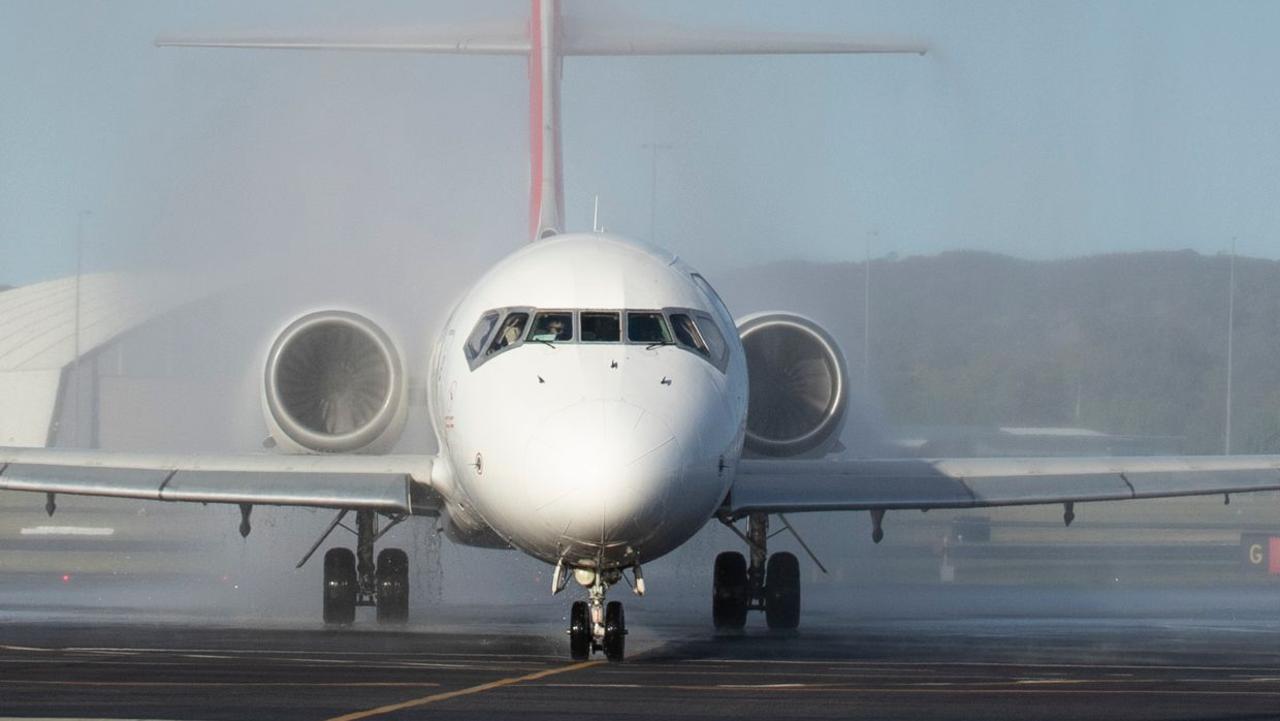Is making a passengers’ life a misery a calculated strategy?
THE shrinking seats, add-on fee craziness and culinary journeys from hell — could airlines be making us miserable on purpose?

CATTLE class seats are shrinking, in-flight meals can be culinary journeys from hell and there are more add-on fees than ever before.
No wonder air rage is on the rise.
Incidents of misbehaving passengers have risen sharply in the last three years with cases of passengers fighting cabin crew and each other.
In 2014 there were 114 instances of disruptive passengers on UK airlines and on foreign airlines operating in UK airspace, according to the UK’s Civil Aviation Authority. The figure was a huge increase compared with 85 instances in 2013.
Obviously, flying has become a stressful experience. In Australia, complaints to the airline ombudsman in 2014 were up 13 per cent on the prior year’s figures — but then 500,000 more people flew last year than they did in the previous year.
Tigerair is Australia’s smallest national airline but leads the charge when it comes to complaints from its customers.
The 2014 report from the Federal Government-appointed Airline Customer Advocate (ACA) showed Tigerair received more than double the number of complaints than for all three other airlines — Qantas, Jetstar and Virgin — combined.
An American academic in an article in the New Yorker has questioned whether airlines could be making us miserable on purpose.
In the piece titled “Why Airlines Want to Make You Suffer,” Columbia Law School professor Tim Wu posits that bad, no-frills service has become a cornerstone of commercial airlines’ business strategy.
“In the past decade, the major airlines have done what they can to make flying basic economy, particularly on longer flights, an intolerable experience,” he said.
He uses the term “calculated misery” to describe this strategy employed by the airline industry.
“Basic service, without fees, must be sufficiently degraded … to make people want to pay to escape it. And that’s where the suffering begins.”
Wu explains that, in 2013, airlines made a whopping $US31.5 billion on these fees and says it’s nothing short of confounding that as commercial airline profits skyrocket in the US, customer service is worse than ever.
But it’s highly likely we consumers are a big part of the reason why the flying experience has change dramatically since the Golden Age of Flying — the glory years of Pan Am and the Concorde in the 1950s and 1960s, before flight became cheap with the rise of the jumbo jet.
In 1945 it took 130 average weeks salary to fly from Sydney to London return. In 1955 it was 52 weeks, in the mid 1960s with the advent of jets it was 22 weeks, and in the mid 1980s eight weeks. Today it is just one week’s average salary.
And how much luxury can you expect if you want to fly through the air for the price of a long distance train ticket? These days “sit back and relax” has largely become “you get what you pay for”.
And here are some of the main bugbears we have with modern air travel.

SHRINKING SEATS
With airlines keen to squeeze more customers onto every flight, the size of the seats we squash ourselves in to are shrinking.
Some British studies in the late 1990s suggested that these tighter seating configurations of low cost airlines may be a safety hazard in the case of an emergency evacuation.
A group of people in the US have become so frustrated with the every shrinking seat that they’re trying to do something about it.
US pressure group FlyersRights has filed a petition demanding legal limits on the size of plane seats. The “seat-space petition”, filed in late August, asks the US Federal Aviation Administration to put a stop on any further reduction in seat space and to appoint a panel to come up with minimum seat standards.
Although the request would initially only come into force the US, if adopted, it would have implications for the rest of the airline industry.
A DIZZYING ARRAY OF EXTRAS
Airlines have responded to passenger demands for the lowest possible fares by stripping away all the elements that make up an airfare and letting passengers then add back options to tailor the experience to their exact needs and budget.
Tigerair was ranked sixth in an analysis of more than 60 global airlines when it comes to slugging passengers for extras beyond the price of a ticket. Jetstar came in at number seven, while Qantas came in at 21st on the list, according to an analysis from US company IdeaWorks.
It can cost $160 for Jetstar passengers to check in their luggage at the airport if they’re flying internationally, and up to $90 on Tigerair, which is quite a hit on the hip pocket.
HUGE FEES FOR TICKET CHANGES
Airlines make people pay dearly for changing their travel plans, from $150 — already nothing to sneeze at — to $200. (For some international flights, that figure can rise to $300.) Sometimes it’s cheaper to buy a new ticket than pay the change fee.
BUSY BOARDING
Airlines have tinkering with different boarding systems for yonks in an effort to speed up a part of flying that creates delays even before the plane leaves the gate. American airline Delta is experimenting with preloading carry-on bags above passengers’ seats on some flights. It’s tested the process in Atlanta and Los Angeles and saw some reduction in boarding time.
EXPENSIVE TICKETS PRICES
If you want to travel during holiday periods or for a major sporting event most people know that you are going to pay dearly for it. This Grand Final weekend it was cheaper for some fans to fly via an international port than take a direct domestic flight. Perth residents saw fares as high as $2800 to get to Melbourne to see the Eagles play at the MCG, while Cairns residents were looking at prices of over $1000 to get to Sydney to see an all-Queensland showdown in the NRL.
BOOKING AND OVERBOOKING FLIGHTS
It’s a key part of an airline’s strategy — overbook flights to compensate for passengers who fail to turn up at the airport. If you’re bumped from an overbooked flight, Virgin, for example, offers monetary compensation (maximum of $1,350) if the carrier offers an alternate flight that is planned to arrive at the destination not later than one hour after the planned arrival time of the passenger’s original flight. When airlines push for profits even harder, which includes overbooking flights, some customers inevitably lose the seats they paid money for.




